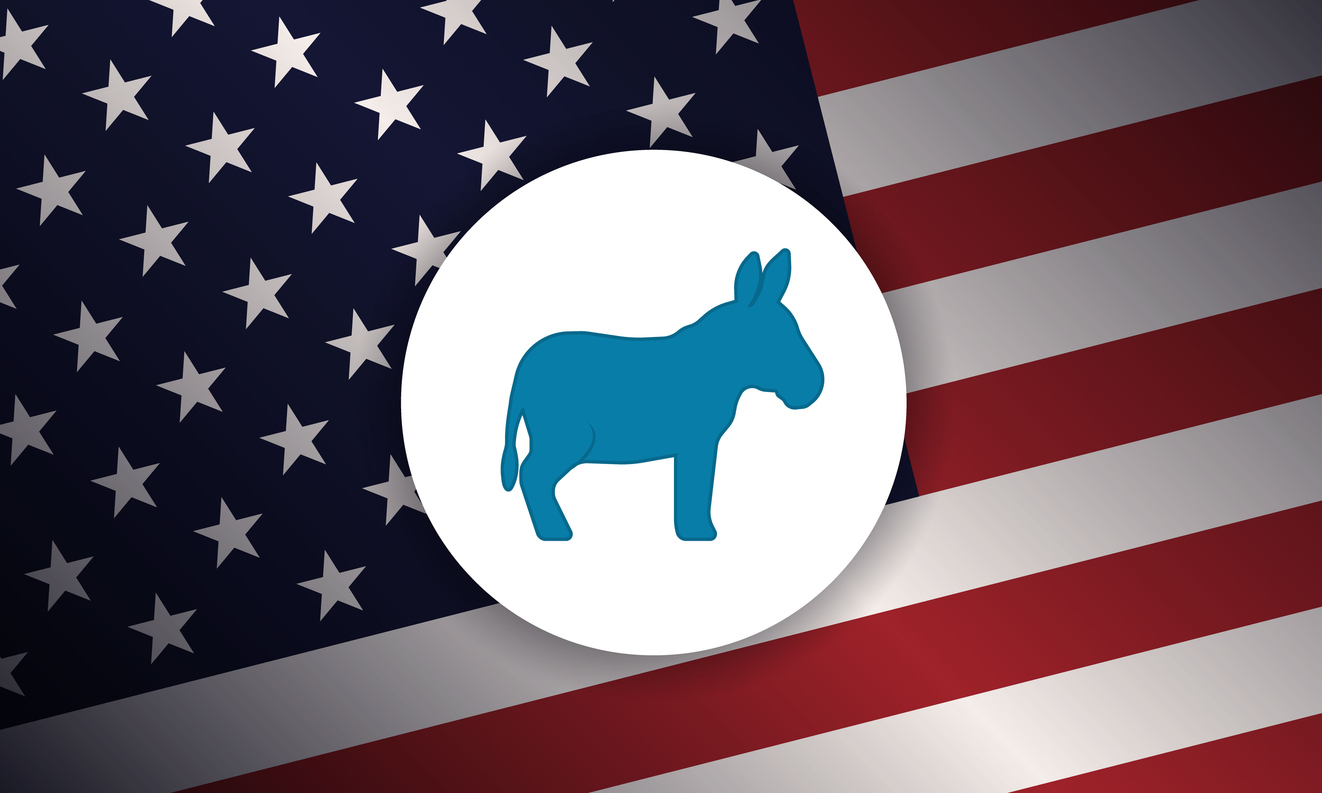The Scoop: In apparent bid for 2028 nomination, Gavin Newsom calls own party ‘toxic’
Plus: Primark praises whistleblower as CEO steps down; Disney in FCC crosshairs for DEI.

Gavin Newsom, a Democrat serving his second term as governor of California, has gone on the offensive against his own party.
During an interview on “Real Time With Bill Maher,” Newsom called his party’s brand “toxic” and accused it of engaging in “cancel culture.”
“We talk down to people. We talk past people,” Newsom said, according to the New York Times.
While Newsom hasn’t yet confirmed he’s seeking the presidential nomination, he certainly hasn’t ruled it out. His criticism of the party he may seek to lead could be a key pitch to constituents who are tired of losing.
“We need to own our mistakes. We need to own what’s wrong with our party,” he told Maheor.
In addition to plainspoken criticism, Newsom has also broken with some aspects of Democratic orthodoxy, including criticizing transgender athletes who play female sports, calling it “deeply unfair.”
But some members of his party are pushing back against his critiques. Ro Khanna, a Democratic representative from California who is also reportedly eyeing a presidential run, took to X to criticize Newsom.
“With respect, @GavinNewsom the Democratic party is not ‘toxic.’ This is not the time to join the chorus in bashing our party. The rage should be about what Trump is doing TODAY. Let’s share what our party has done & offer a forward vision for the future.”
Why it matters:
We’re less than six months removed from the 2024 elections and we’re already talking about 2028. Buckle in.
But from a communications standpoint, we can see two different approaches forming. One, exemplified here by Khanna, is about staying the course, emphasizing legacy while offering a clear path forward. It’s a more traditional approach for the party.
Meanwhile, Newsom is offering a more fiery strategy that involves taking their lumps, admitting mistakes and doing things in new ways — even if that potentially angers or alienates some members of their party.
Khanna offers a more-of-the-same vision: talk about what you’ve done well, focus on what you will do. Avoid talking about mistakes.
Both approaches carry risks.
But as Newsom pointed out, only 27% of registered voters have positive views of the Democratic party, the lowest since polling began in 1990. Even among Democrats, 20% have a negative view of the party. Doing more of the same with numbers like that carries weighty risks, whether you’re a political campaign or a company that needs to improve the bottom line.
It’s far, far too early to know which of these approaches (or perhaps a secret third option) will win out. But the battle exemplifies a common communications challenge: stay the course or be willing to move fast and break things?
Editor’s Top Reads
- The CEO of British fast fashion giant Primark has left the company after allegations about “his behaviour towards (an individual) in a social environment.” According to a statement released by the company, former CEO Paul Marchant cooperated with the investigation and apologized to both the individual as well as his colleagues before his departure. “We remain in contact with the individual who rightly raised her concerns and have offered her our support,” the statement says pointedly. By American standards, this is a remarkably contrite statement. Not only does it say that Marchant apologized — something that rarely happens in the States for legal reasons — it also offers a full-throated support of the person who came forward, emphasizing that the person who came forward was in the right to do so. These statements must be carefully considered given the legal environment they’re made in, but the rare inclusion of praise for the victim of this behavior is noteworthy — and may be worth considering to encourage other whistleblowers of various kinds to step forward.
- Disney and ABC are in the crosshairs of an FCC investigation into their current and past DEI practices. “Numerous reports indicate that Disney’s leadership went all in on invidious forms of DEI discrimination a few years ago and apparently did so in a manner that infected many aspects of your company’s decisions,” FCC Chair Brendan Carr wrote in a letter to the company. Disney has already walked back some of its DEI practices, including replacing its Diversity & Inclusion metric for executive pay with Talent Strategy. However, Carr made it clear that changes moving forward are not enough — the past will be scrutinized as well, listing several initiatives that were designed to bring underrepresented faces and voices to the screen. It’s unclear how these investigations will play out — and what role the courts will have to play in deciding what is and was legal. But rebranding DEI is not enough for this Trump administration. Disney, for its part, responded with a carefully bland statement: “We are reviewing the Federal Communications Commission’s letter, and we look forward to engaging with the commission to answer its questions.”
- One thing that sets Bluesky apart from competitors is how it’s built. Any developer is free to use the same protocol to build their own app — and many are. These apps are not necessarily affiliated with Bluesky, but rather built on the same platform and are able to be easily integrated with the more popular microblogging app. TechCrunch curated a list of some of the biggest consumer-facing apps being built this way, including:
There are plenty more in the full article. But this plethora of new apps could present new opportunities for social media marketing — or could be so many more flashes in the pan. Keep your ear out, listen for buzz, but don’t overstretch yourself trying to jump onto every new platform. Though it’s never a bad idea to grab your brand usernames, just in case it becomes the next big thing.
Allison Carter is editorial director of PR Daily and Ragan.com. Follow her on LinkedIn.







